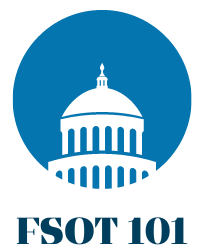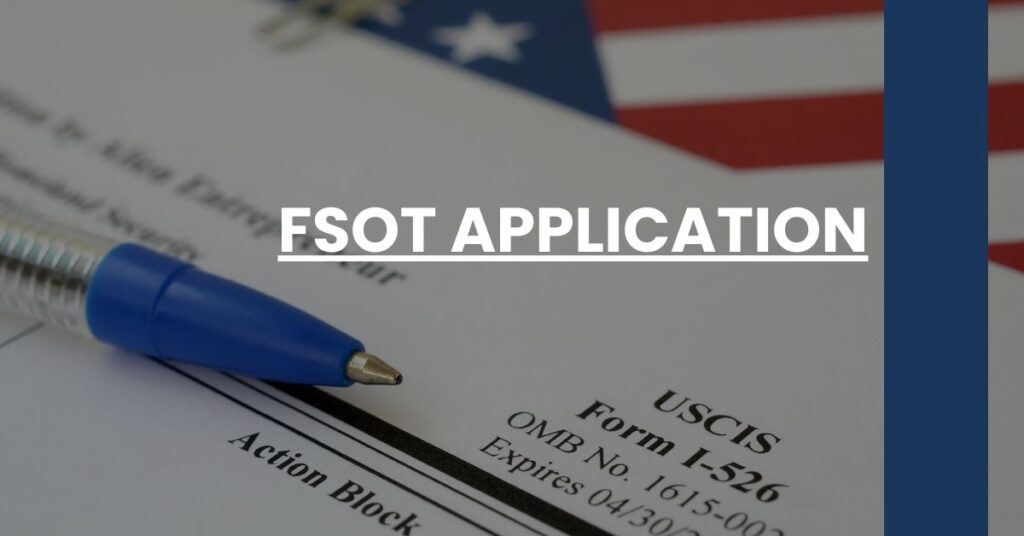Navigating your FSOT application can set the stage for a rewarding Foreign Service career.
- Eligibility Criteria: Understanding the age, citizenship, and education requirements for the FSOT.
- Registration Process: Steps to register for the FSOT in a timely and correct manner.
- Preparation Resources: Identifying useful study materials and resources for a successful FSOT application.
Ensure your FSOT application reflects your dedication and qualifications.
- Eligibility Requirements for the FSOT
- Registering for the FSOT
- Step 1: Submitting the FSOT Application
- Step 2: The Foreign Service Officer Assessment (FSOA)
- Qualifications Evaluation Panel (QEP)
- Crafting Compelling FSO Personal Narratives
- The Foreign Service Officer Test (FSOT) Explained
- The Path to the Register
- The Foreign Service Officer Final Offer
- Resources and Preparation Tips
- The Benefits of a Career in the Foreign Service
- Adapting to the ‘Whole Candidate’ Approach
- Conclusion: Launching Your Foreign Service Career
Eligibility Requirements for the FSOT
Before embarking on the journey of the Foreign Service Officer Test (FSOT) application, you must ensure you meet certain non-negotiable eligibility requirements. These set the stage for your future career in diplomacy and international relations.
Are You the Right Age and a U.S. Citizen?
- Age Range: You must be aged between 20-59 upon submission of the application package and must turn at least 21 and be under 60 by the time of appointment as a Foreign Service Officer.
- Citizenship Status: As of registration, you must hold U.S. citizenship. This is to ensure commitment and eligibility for the diverse postings around the globe.
Educational Background and World Readiness
Although a specific educational background is not mandated, it’s widely acknowledged that a broad range of knowledge and the ability to adapt to various cultural environments are crucial assets. Put plainly, your willingness to be available for worldwide assignments is non-negotiable.
To give your FSOT application the edge it deserves, ensure you’re well-versed in the primary criteria before diving deeper into the registration specifics.
Registering for the FSOT
Your FSOT journey starts with registration. How you handle this initial step can set the tone for the entire application process.
Timely Registration: Mark Your Calendar
Secure your seat by adhering to the stringent registration deadlines which open three times annually. A noteworthy tip is to stay watchful for the following:
- Registration Window: Bookmark the dates of the FSOT registration, which typically concludes three days before the examination window opens.
- Submission Platform: Be ready to interact with your chosen application venue, whether through a dedicated portal or a third-party site like Pearson VUE.
Required Information
Have all necessary documents at hand, including proof of U.S. citizenship, your resume, transcripts, and any other documents that endorse your eligibility and qualifications.
Step 1: Submitting the FSOT Application
Completing the FSOT application is about attention to detail and presenting the full spectrum of your qualifications.
Completeness and Accuracy
Ensure you:
- Fill out the application form meticulously.
- Attach all required documents.
- Double-check for completeness and clarity.
Remember, this isn’t just about ticking boxes; it’s about showcasing your dedication to the process. Make sure every piece of information included in your FSOT application paints an honest and compelling picture of your candidacy.
Step 2: The Foreign Service Officer Assessment (FSOA)
Following your FSOT application submission, brace yourself for the Foreign Service Officer Assessment (FSOA), which is essentially an extension presenting further opportunities to demonstrate your suitability.
Assessment Components
The FSOA incorporates several components that evaluate your analytical, writing, and oral presentation skills. Prepare to engage in group exercises, demonstrate your writing prowess, and respond with poise to interview questions.
Prep Tips:
- Exude Confidence: Harness your inner strength to handle the unpredictable nature of situational judgment tests.
- Practice Clear Communication: Enhance your ability to articulate thoughts clearly—conciseness and precision are your allies.
Qualifications Evaluation Panel (QEP)
Upon clearing the FSOT and FSOA hurdles, your application will be reviewed by the Qualifications Evaluation Panel (QEP). The panel seeks a comprehensive sense of your potential through various lenses—the crux of whether you move forward in the candidate pool.
The QEP scrutinizes not just your scores, but also the professional narrative you’ve weaved through your Personal Narratives (PNs), prior work experiences, and educational background.
Crafting Compelling FSO Personal Narratives
Writing your PNs is perhaps the most personal part of the FSOT application. It’s here you can surface your distinctive experiences and relate them to the core precepts of the Foreign Service.
Making Your Case:
- Use Vivid Examples: Draw from the well of your life and career—pick moments that echo the qualities of an ideal Foreign Service Officer.
- Refine Your Stories: Apply the STAR-L framework—describe the Situation, Task, Action, Result, and Learning to build a solid structure for your narrative.
By treating each narrative as a chapter in your professional tapestry, you invite the QEP to see beyond mere achievements to the essence of who you are and the diplomat you aspire to become.
The Foreign Service Officer Test (FSOT) Explained
Embarking on the FSOT application process, one of the pivotal moments is undoubtedly taking the FSOT itself—a challenging examination that probes the depth and breadth of your knowledge and skills. Let’s unpack this key component of your journey to becoming a Foreign Service Officer.
Understanding the FSOT Structure
It’s essential to approach the FSOT with a clear understanding of its components. The exam’s structure is divided into the following segments:
- Job Knowledge: This section gauges your understanding of world events, U.S. society, government, economics, and other topics that a Foreign Service Officer should be knowledgeable about.
- Biographic Information: Here, you’ll detail your background and experiences, illuminating how your past fits with the demanding lifestyle of an Officer.
- English Expression: Test your command of the English language in this segment, emphasizing grammar and clarity of expression.
- Essay: You’re asked to craft an essay on a given topic, demonstrating your ability to convey complex ideas effectively in writing.
To navigate each section successfully, immerse yourself in a broad spectrum of subjects and hone your writing skills, ensuring you’re well-armed to tackle every question and essay prompt with confidence.
Tailoring Your Study Strategy
As you prepare for the FSOT, consider adopting a systematic approach akin to training for a marathon—it’s a test of endurance as much as knowledge.
- Job Knowledge Prep: Engage regularly with current events, listen to world news, and read recommended literature to deepen your understanding of foreign affairs.
- Polishing Language Skills: Perfect your grammar and composition by reviewing English language resources, perhaps even enrolling in online courses to cement these skills.
- Essay Writing: Practice writing essays under time constraints, critically reflecting upon and refining your arguments and writing structure.
For an ambitious candidate like you, directed preparation using tailored resources will not only prepare you for the FSOT but also inaugurate the kind of continuous learning that defines a successful Foreign Service career.
The Path to the Register
You’ve envisioned your name on the Register, the final merit-based list from which Foreign Service Officers are chosen. But what does it take to ascend to your rightful place on this list? Let’s decode the process.
The Ranking Mechanism Explained
Upon passing the FSOT and FSOA, you are placed on the Register according to your overall score, which is modified by any preference points for language proficiency or veteran status. The higher your ranking, the swifter your potential call to service. It’s crucial to recognize that the register is not a mere waiting list; it is reflective of the highly competitive nature of the FSOT application process.
The Foreign Service Officer Final Offer
After the meticulous preparation and the rigor of exams, few moments are as gratifying as receiving the final offer to become a Foreign Service Officer.
Navigating Clearance and Suitability Review
Bear in mind, the offer is contingent upon:
- Security Clearance: You must pass a thorough security clearance to confirm your eligibility to handle classified information—an absolute must in the field of diplomacy and foreign affairs.
- Medical Clearance: Your physical and mental readiness to live overseas and manage the inherent stresses of diplomatic life will also be evaluated.
- Suitability Panel Review: This step assures you adhere to the high moral and ethical standards expected of U.S. diplomats.
Preparing your documents and information beforehand can expedite these stages, ushering you more swiftly towards your career as a Foreign Service Officer.
Resources and Preparation Tips
While the FSOT application process may seem formidable, a world of resources awaits to guide your study and preparation.
- Comprehensive Study Materials: Tackle subjects systematically with FSOT-oriented study guides and take advantage of practice tests to familiarize yourself with the examination format.
- Cultivate a Learning Community: Engage with forums and study groups that cater to FSOT applicants, creating a network of support and shared knowledge.
- Continuous Feedback: Regularly assess your knowledge with mock tests, seeking feedback to identify areas for improvement, and reinforcing your strengths.
With these resources in your arsenal, you’re better equipped to embark on a systematic and informed preparation journey, boosting your chances of success manifold.
The Benefits of a Career in the Foreign Service
Your eventual success in the FSOT application process paves the way to a Foreign Service career—a career defined by diversity, impact, and personal growth.
Tangible and Intangible Rewards
As a Foreign Service Officer, you benefit from:
- Global Impact: Engage in work that shapes international relations and contributes to the greater global dialogue.
- Professional Evolution: Each diplomatic post offers unique challenges that foster professional resilience and amplify your skillset.
- Cultural Exploration: Immerse yourself in different cultures, learn new languages, and enrich your worldview.
These benefits echo the profound personal and professional fulfillment that encapsulates a career within the Foreign Service.
Adapting to the ‘Whole Candidate’ Approach
Recent shifts in the FSOT application process have moved towards evaluating the ‘whole candidate’, seeking a multidimensional appreciation of your competencies.
Aligning with Holistic Assessment
- Diversify Your Profile: Accumulate a variety of skills and experiences to present a well-rounded profile reflecting dynamic abilities.
- Reflect on Personal Growth: Narrate your experiences in a way that spotlights your adaptability and learning, aligning with the principles of the Foreign Service.
- Utilize Feedback: Embrace constructive criticism as a stepping stone to evolve your candidacy, consistently aiming for improvement.
Consciously aligning yourself with this comprehensive approach significantly enhances your candidacy in the evolving landscape of foreign diplomacy.
Conclusion: Launching Your Foreign Service Career
In the constellation of career opportunities, the Foreign Service shines with a unique luster, promising an odyssey of global engagement and intellectual challenge. Your FSOT application is more than paperwork; it’s the prologue to a life less ordinary, a tale of international intrigue colored by commitment and crowned with the potential for unparalleled personal development.
Embrace each stage of the application with foresight and absorption—the meticulous eligibility checks, the exacting preparation, the nerve-center of the exam itself, and the rigorous scrutiny of clearances. With each step, you’re building towards not just a job, but a vocation that traverses boundaries and reshapes worlds.
Your application’s journey—from the initial eligibility criteria to the final triumphant placement on the Register—mirrors the intricate dance of diplomacy itself. It’s a path defined by continuous growth, adaptability, and the pursuit of excellence. Ready your application, fortify your resolve, and set your sights on the horizon of international service. The world awaits the unique contributions of your unwavering spirit and sharp intellect within the illustrious ranks of the U.S. Foreign Service.
FSOT application guide: Start your journey towards a career in diplomacy with eligibility details, registration steps, and preparation tips.

